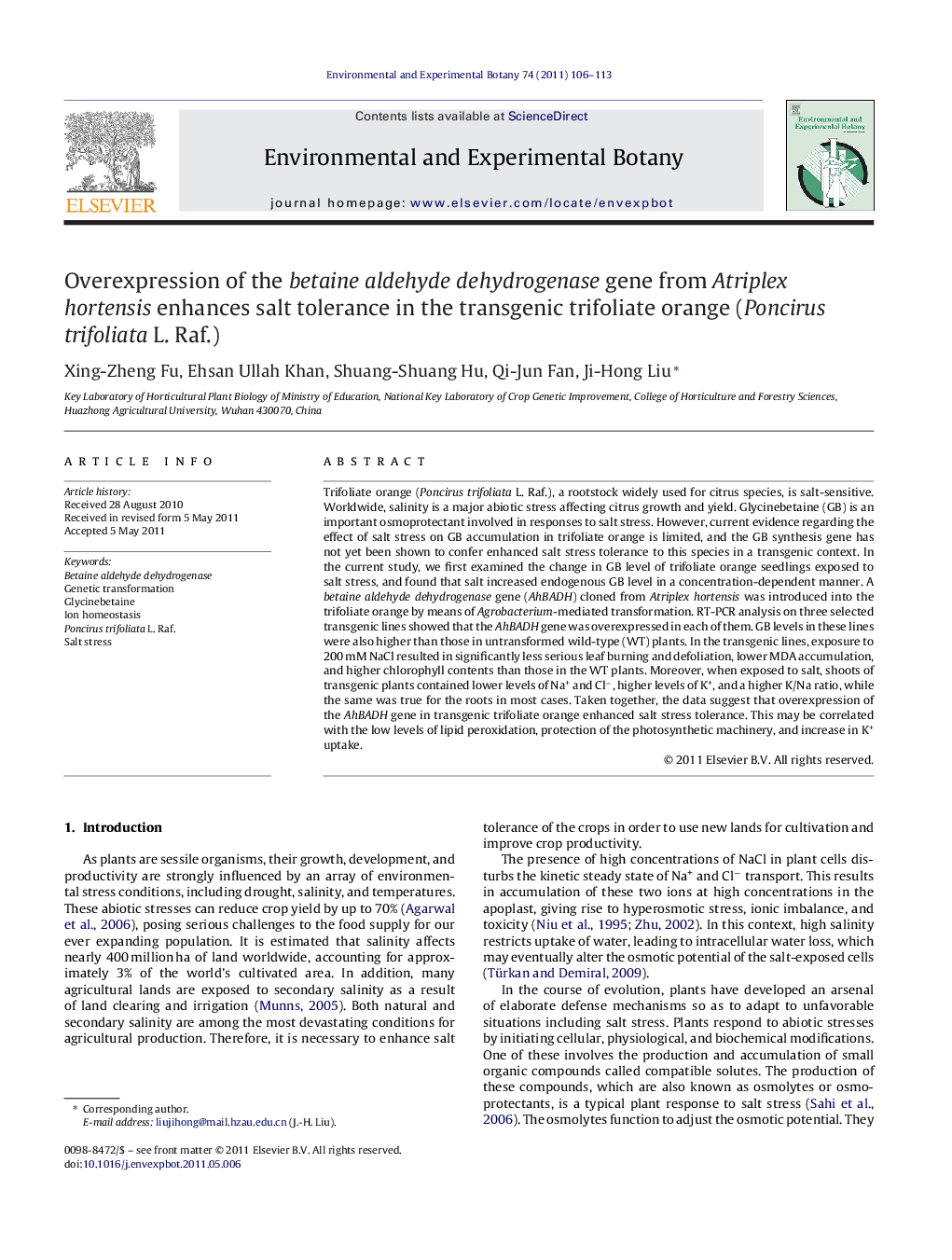| Article ID | Journal | Published Year | Pages | File Type |
|---|---|---|---|---|
| 4554800 | Environmental and Experimental Botany | 2011 | 8 Pages |
Trifoliate orange (Poncirus trifoliata L. Raf.), a rootstock widely used for citrus species, is salt-sensitive. Worldwide, salinity is a major abiotic stress affecting citrus growth and yield. Glycinebetaine (GB) is an important osmoprotectant involved in responses to salt stress. However, current evidence regarding the effect of salt stress on GB accumulation in trifoliate orange is limited, and the GB synthesis gene has not yet been shown to confer enhanced salt stress tolerance to this species in a transgenic context. In the current study, we first examined the change in GB level of trifoliate orange seedlings exposed to salt stress, and found that salt increased endogenous GB level in a concentration-dependent manner. A betaine aldehyde dehydrogenase gene (AhBADH) cloned from Atriplex hortensis was introduced into the trifoliate orange by means of Agrobacterium-mediated transformation. RT-PCR analysis on three selected transgenic lines showed that the AhBADH gene was overexpressed in each of them. GB levels in these lines were also higher than those in untransformed wild-type (WT) plants. In the transgenic lines, exposure to 200 mM NaCl resulted in significantly less serious leaf burning and defoliation, lower MDA accumulation, and higher chlorophyll contents than those in the WT plants. Moreover, when exposed to salt, shoots of transgenic plants contained lower levels of Na+ and Cl−, higher levels of K+, and a higher K/Na ratio, while the same was true for the roots in most cases. Taken together, the data suggest that overexpression of the AhBADH gene in transgenic trifoliate orange enhanced salt stress tolerance. This may be correlated with the low levels of lipid peroxidation, protection of the photosynthetic machinery, and increase in K+ uptake.
Graphical abstractFigure optionsDownload full-size imageDownload as PowerPoint slideHighlights► Trifoliate orange (Poncirus trifoliata L. Raf.) accumulates glycinebetaine (GB) naturally. ► Salt stress causes accumulation of endogenous GB in a NaCl concentration-dependent manner. ► Transgenic trifoliate orange plants overexpressing AhBADH gene accumulate higher level of GB. ► Three transgenic lines exhibit better tolerance to 200 mM NaCl relative to wild type plant. ► Salt tolerance is due to diverse functions of GB in plant system.
